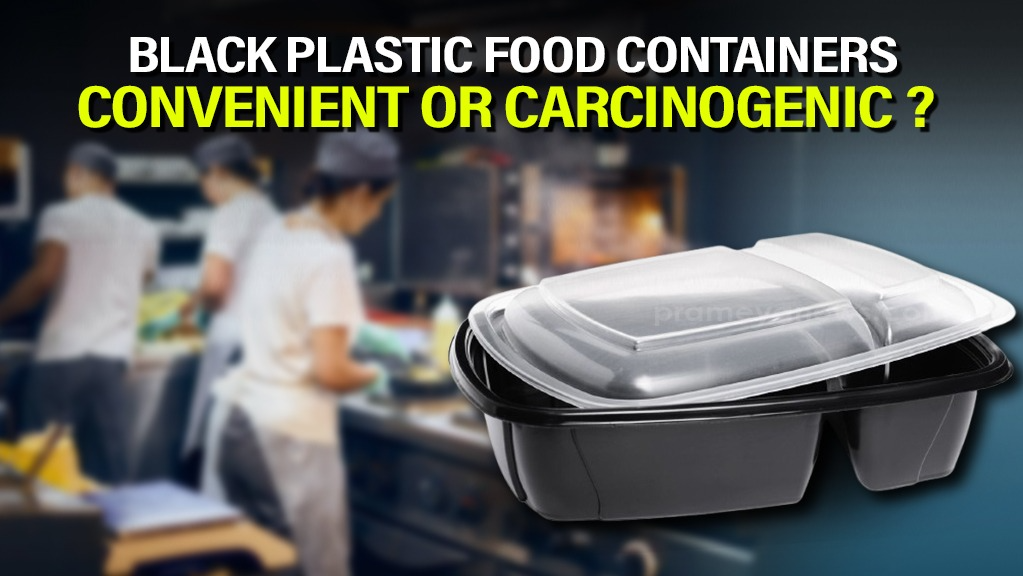

We've all been there – ordering takeout and receiving it in those ubiquitous black plastic containers. They're sturdy, convenient, and often get a second life storing leftovers in our fridges. But a recent wave of concern, fueled in part by a viral Instagram video, has many of us questioning the safety of these seemingly harmless containers. Is black plastic just another convenient material, or is it a silent health hazard lurking in our kitchens? The debate centers around the chemicals used in their production and whether they can migrate into our food, potentially increasing our risk of cancer and other health problems. Let's dive into the science behind these concerns and separate fact from fiction.
The Rise of Black Plastic and the Viral Spark
Black plastic has become a mainstay in the food industry, used not just for delivery containers but also for spatulas, serving spoons, and other kitchen utensils. Its popularity stems from its durability, low cost, and often, its origin: recycled materials. Recently, an Instagram influencer's video cautioning against the use and reuse of black plastic containers for storing or microwaving food went viral, igniting a widespread discussion. The video tapped into a growing awareness of the potential dangers of certain plastics, particularly when heated.
Black Plastic: What's the Deal?
The concern with black plastic isn't necessarily the color itself, but rather what's often lurking within its composition. Here's the breakdown:
The Big Question: Can Black Plastic Cause Cancer?
A recent study published in the journal Chemosphere added fuel to the fire. Researchers analyzed 203 black plastic consumer products and found toxic flame-retardant chemicals in a whopping 85% of them. This is concerning because some of these chemicals, including decaBDE, are classified as "suspected carcinogens" and "endocrine disruptors."
Beyond Cancer: Other Health and Environmental Concerns
The potential risks of black plastic extend beyond cancer. Here are some other areas of concern:
The Bottom Line: Should You Ditch Black Plastic?
While a definitive "yes" or "no" on the cancer link is still pending further research, the evidence strongly suggests that it's wise to err on the side of caution. Experts unanimously recommend minimizing your exposure to black plastic, especially when it comes to food.
Here are some practical steps you can take:
A Call for Safer Alternatives and More Research
The debate surrounding black plastic highlights a growing awareness of the potential health risks associated with everyday materials. While more research is needed to establish a definitive link between black plastic and cancer, the existing evidence raises significant concerns about its chemical composition and its potential to leach harmful substances into our food and environment. This situation underscores the urgent need for stricter regulations on the use of recycled materials in food-contact products and for the development of safer, more sustainable alternatives. As consumers, we can make informed choices to minimize our exposure to potentially harmful chemicals. By opting for safer materials and advocating for greater transparency in product manufacturing, we can push for a healthier and more sustainable future. The black plastic debate is a reminder that convenience should not come at the cost of our health or the well-being of our planet. It's a call to action for both individuals and industries to prioritize safety and sustainability in the choices we make every day.
DISCLAIMER: The information presented in this brief draws upon publicly available sources, including news reports, and industry publications, and expert commentary. The analysis and conclusions presented reflect the author's own understanding and perspective.